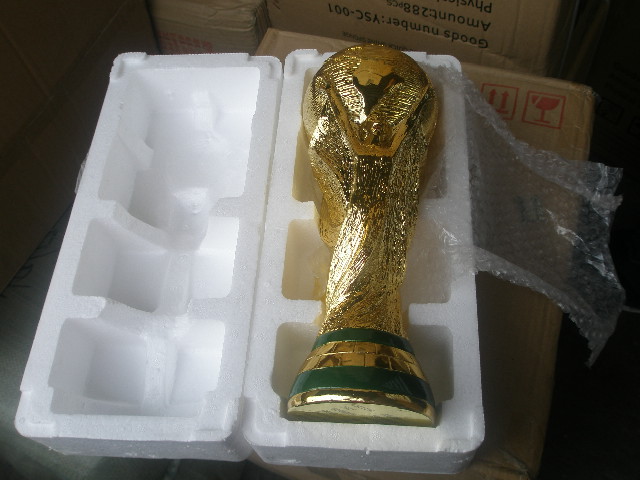By Andrew Warshaw in Zurich
October 28 – World football’s governing body is locked in painstaking discussions about whether to split the dates for deciding the 2018 and 2022 World Cup hosts - or postpone the December 2 vote altogether.
As FIFA’s Executive Committee began one of its most important sessions of recent years, sources have told insideworldfootball that some members want to delay a decision on the 2022 World Cup in order to limit the possibility of vote-swapping following the recent spate of bribery and corruption allegations.
Even before the Sunday Times allegations that rocked FIFA’s credibility and transparency and led to a full investigation by their ethics committee, Qatar’s FIFA Executive Committee member Mohammed Bin Hammam revealed he was originally against the principle of holding the vote for both World Cups at the same time – but did not have enough support.
Ironically, Qatar, which is chasing 2022, is at the centre of the ongoing scandal amid claims it has done a vote-trading deal, totally against FIFA rules, with Spain/Portugal, one of the four 2018 candidates.
The corruption allegations inevitably dominate the two-day agenda at FIFA headquarters in Zurich, with an eagerly-awaited news conference scheduled for tomorrow afternoon to disclose how the actual voting procedure for both World Cups will work.
In order to give details, FIFA will have no choice but to divulge whether it is sticking to a joint vote, and to say if the scheduled December 2 date still stands for one or both competitions.
Gerhard Mayer-Vorfelder, a former FIFA Executive Committee member, told Reuters the vote should be delayed to allow for the investigation into suspended exco members Amos Adamu and Reynald Temarii, who are alleged to have offered their votes for cash, to be completed.
The Ethics Committee are due to announce their verdicts on November 17.
“Four weeks [delay] would not make a big difference,” Mayer-Vorfelder said.
Yet there is growing evidence that a delay of any kind would be fiercely resisted by the majority of FIFA members.
FIFA’s administration would be unable – having set up an entire infrastructure for early December – to find enough time to reschedule for January.
A logistical nightmare is how one source put it.
Then, FIFA’s individual confederations have their congresses in the first half of next year at which new Executive Committee members could be appointed.
That means the only likely revised date - either for a total postponement or just for 2022 - would be early next summer.
But that, too, would pose problems.
The budgets of bid committees would have to be extended to take in six months’ extra staffing and lobbying while FIFA President Sepp Blatter, who stands for re-election in May, is keen to have the host nations for both 2018 and 2022 sorted out by then.
Just to complicate matters, no-one knows until the Ethics Committee hearing whether 22 Executive Committee members will be eligible to vote instead of 24 or whether Adamu and Temarii will be rreplaced if their provisional suspensions are extended.
Or, for that matter, whether Spain/Portugal and Qatar will be exonerated or punished for agreeing an alleged pact, leaving only seven bidding candidates.
Qatar have fiercely denied the allegations and Spain/Portugal have now followed suit.
Miguel Angel Lopez, chief executive of the Spanish/Portuguese candidacy, said: “We told FIFA we do not have any agreement with another bidding nation.”
Contact the writer of this story zib.l1745296671labto1745296671ofdlr1745296671owedi1745296671sni@w1745296671ahsra1745296671w.wer1745296671dna1745296671
Related stories
October 2010: Exclusive – Zen-Ruffinen admits meeting undercover reporters “a lot of times”
October 2010: Former FIFA secretary general caught up in corruption scandal
October 2010: World Cup bidders warned to stay away from disgraced pair
October 2010: “I’ve done nothing wrong,” insists Adamu
October 2010: World Cup bid teams impose news blackout over corruption scandal

